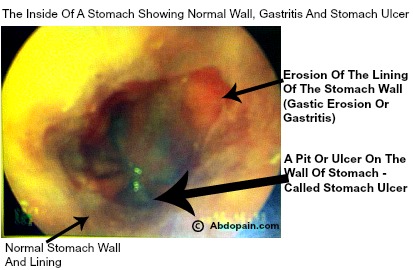Indigestion
Indigestion refers to the feeling of upper central abdominal discomfort or pain associated with a feeling of bloating, belching, with or without nausea after eating. Dyspepsia is the medical term used to describe this condition. It is caused by a number of conditions that affects the upper gut - oesophagus, stomach and duodenum. Most causes of indigestion are trivial but sometimes, it could be a sign of a more serious disease. Let us take a look at the causes, accompanying symptoms that should be taken seriously, what you can do and the treatment for this condition.

Indigestion or dyspepsia is so common that up to 2 out of
every 5 adults would suffer with this condition in any given year. It is a condition that occurs when the normal process of
digestion of food in our upper gut is not working well.
What many people describe as indigestion could also be referred to by names like heartburn, GERD - Gastro Esophageal Reflux Disease (or GORD - Gastro Oesophageal Reflux Disease in the UK), reflux, and more.
The truth is, the symptoms of indigestion could result from any of the above conditions, and they are indeed believed to be different degree of the same disease, with stomach ulcer, duodenal ulcer and stomach cancer being at the very end of the scale. Thankfully, most cases of indigestion are due to reflux (GERD or GORD) and not ulcers or stomach cancer.
Causes Of Indigestion
If you have indigestion (the feelings of upper abdominal pain or discomfort, getting easily satisfied, bloating, belching, or a burning sensation under your breast plate bone, nausea or actually vomiting after meals), it might be a symptom of any of the following conditions:
- Oesophagitis. This is the irritation of the lower part of the gullet or esophagus. When in contact with food the irritation becomes worsened due to the acid produced by the stomach in response to the meal being eaten
- Gastritis. This is the irritation of the lining of the wall of the stomach. It could follow consumption of alcohol - binge drinking, certain medications, or very spicy food. It causes a burning upper middle or central abdominal pain that could be associated with nausea and vomiting
- Duodenitis. This is the irritation of the first part of the small intestine called the duodenum . This can also be caused by spicy food, alcohol or drugs or severe stress.
- Acid Reflux. This occurs due to excessive production of acid in some people or when the muscle ring at the lower oesophagus or gullet is weak, causing acid to flow back from the stomach into gullet, and sometimes up to the back of the mouth and throat into the lungs. This typically causes indigestion and heartburn symptoms, with chronic cough and a bad taste in the back of the throat especially in the morning



